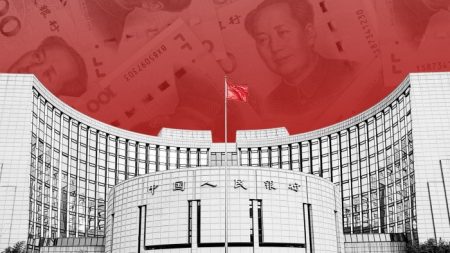BlackRock and JPMorgan Chase are helping the Ukrainian government set up a reconstruction bank to steer public seed capital into rebuilding projects that can attract hundreds of billions of dollars in private investment.
The Ukraine Development Fund remains in the planning stages and is not expected to fully launch until the end of hostilities with Russia. But investors will have a preview this week at a London conference co-hosted by the British and Ukrainian governments.
“So many of today’s long-term challenges are best addressed through blended finance and this is one. You need these vehicles to mobilise capital at scale,” said BlackRock vice-chair Philipp Hildebrand, who will be discussing the work on Wednesday.
The World Bank estimated in March that Ukraine would need $411bn to rebuild after the war, and recent Russian attacks have driven that figure higher.
The Kyiv government engaged BlackRock’s consulting arm in November to determine how best to attract that kind of capital, and then added JPMorgan in February. Ukraine president Volodymyr Zelenskyy announced last month that the country was working with the two financial groups and consultants at McKinsey.
No formal fundraising target has been set but people familiar with the discussions say the fund is seeking to raise low-cost capital from governments, donors and international financial institutions and leverage it to attract between five and 10 times as much private investment.
BlackRock and JPMorgan are donating their services, although the work will give them an early look at possible investments in the country. The assignment also deepens JPMorgan’s relationship with a longstanding client. The bank has helped Ukraine raise more than $25bn in sovereign debt since 2010 and led the country’s $20bn debt restructuring last year.
The financiers consulted with private and public sector investors and found they wanted to help Ukraine but were leery not just about war losses but also the country’s governance, lack of transparency and shallow capital markets.
What Ukraine needed, BlackRock advised, was a development finance bank to find investment opportunities in sectors such as infrastructure, climate and agriculture and make them attractive to pension funds and other long-term investors and lenders. JPMorgan was brought in partly for its debt expertise.
“The fund is being set up to also give public and private sector investors the opportunity to invest into specific projects and sectors,” said Stefan Weiler, JPMorgan’s head of debt capital markets for central Europe, Middle East and Africa. “There will be different sectoral funds that the fund identified as priorities for Ukraine. The aim is maximise capital participation.”
The structure calls for the fund to use the lower-cost public money, known as concessional capital, to make initial investments and absorb the first losses.
“The notion is that this initial seed capital would be a de-risking mechanism, and it would create the potential for private sector capital to come in at scale,” said Brandon Hall, co-head of BlackRock’s Financial Markets Advisory arm. “Ukraine will have its own organisation to source and syndicate these local investment opportunities.”
To overcome investor concerns about governance, the fund is expected to stock its board with representatives of international financial institutions and governments and hire investment professionals to execute its strategy.
“Our view is that if you have a strong governance structure and an internationally credible set of stakeholders who are in the leadership position in this fund, then that will go a long way,” Hall said.
BlackRock’s advice has drawn on its work for the Saudi National Development Fund and the Climate Finance Partnership, a blended finance vehicle that directs investment into sustainability projects in emerging markets. McKinsey did not respond to a request for comment.
At present, the Ukraine work is focused on setting up the structure, governance and practical procedures because most investors want to wait for the end of hostilities. “The important part is that Ukraine is already thinking ahead,” Weiler said. “When the war is over, they’re going to want to be ready and start the rebuilding process immediately.”
Read the full article here













